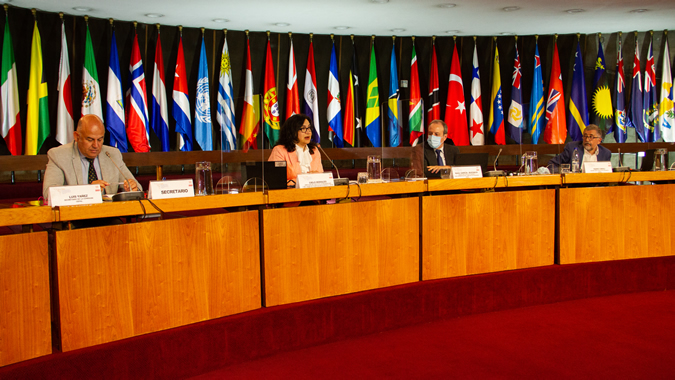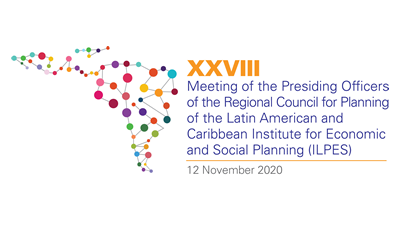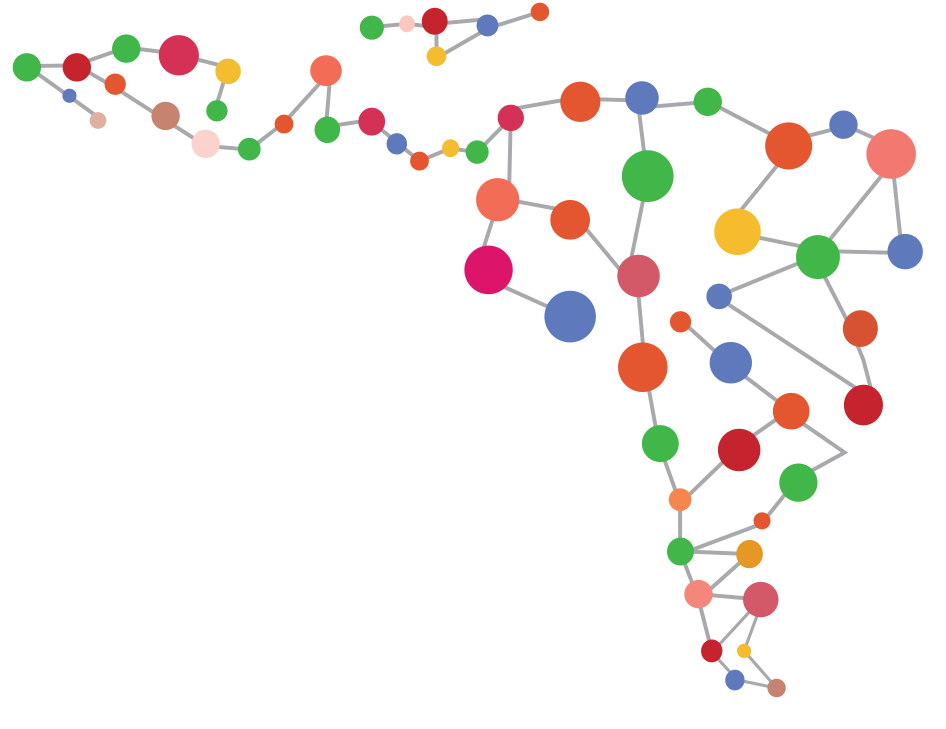ECLAC: Planning Must Be an Instrument of Change in Order to Build a New Future with Equality and Sustainability
Work area(s)
Today, senior authorities from Latin American and Caribbean countries held the twenty-eighth meeting of the Presiding Officers of the Regional Council for Planning of ECLAC’s Latin American and Caribbean Institute for Economic and Social Planning (ILPES).

The current global and regional context demands flexible, participatory, comprehensive and inclusive planning, which can serve as an instrument of change to build a new, post-pandemic future with equality and sustainability, according to the high-level authorities from Latin America and the Caribbean attending the twenty-eighth meeting of the Presiding Officers of the Regional Council for Planning (RCP), which is taking place virtually today.
This event has been organized by the Government of Uruguay, as Chair of the RCP’s Presiding Officers, and the Economic Commission for Latin America and the Caribbean (ECLAC), through its Latin American and Caribbean Institute for Economic and Social Planning (ILPES).
The meeting was inaugurated by Isaac Alfie, Director of the Planning and Budget Office of Uruguay, and – on behalf of Alicia Bárcena, ECLAC’s Executive Secretary – Raúl García-Buchaca, the United Nations regional commission’s Deputy Executive Secretary for Management and Programme Analysis.
Following the inauguration, Mario Cimoli, ECLAC’s Deputy Executive Secretary, gave a presentation on the role of planning in a transformative post-COVID-19 recovery. Meanwhile, the Director of ILPES, Cielo Morales, addressed the scope and objectives of the XXVIII Meeting of the Presiding Officers of the Regional Council for Planning.
In his remarks, Isaac Alfie called for strengthening the coherence and sustainability of public policies to reduce Latin America and the Caribbean’s huge levels of inequality and urged for designing policies that are sustainable over time from a financial and social point of view.
He also added that State responses to the crisis must be evaluated.
“The challenge of 2030 is still there, it looms large and the pandemic has put it to the test. That is why it is necessary for policies to be planned thoroughly and for them to be addressed strategically,” he emphasized.
The Director of Uruguay’s Planning and Budget Office noted that planning is an opportunity for systematic interaction and collaborative work between different social agents in which they not only define shared goals that reflect diverse interests and commitments, but they also learn from the exchange, improving the final product.
Raúl García-Buchaca, meanwhile, stressed that the health, social and economic crisis prompted by COVID-19 has dealt a blow to the entire world, posing unprecedented challenges, and the countries of Latin America and the Caribbean have not been spared.
He specified that the forecasts that ECLAC has shared in recent months reveal that, if the trend holds, regional GDP per capita will contract by -9.1%; the number of people living in poverty will rise by 45.4 million; inequality will grow by between 1% and 8%; and the number of unemployed people will increase by 18 million versus 2019.
For that reason, the role of the State is more important than ever for leading the processes of response and recovery amid the current crisis, ECLAC’s Deputy Executive Secretary for Management and Programme Analysis stated.
“To respond to the challenges arising out of this time of uncertainty that we are living through, it is essential to have comprehensive, flexible and open planning, which would enable us to anticipate events, strengthen participation and citizen collaboration and public leaderships, coordinate sectors and actors, enhance territorial intelligence, and which would have the capacity to incorporate lessons learned and transform its practices and methodologies to formulate more robust plans, policies, programs and projects that would meet the population’s existing and emerging needs,” he sustained.
Meanwhile, Mario Cimoli, ECLAC’s Deputy Executive Secretary, underlined that recouping lost growth in the region will be a slow process and that the effects in terms of trade and economies in general are not clear.
He pinpointed that, according to ECLAC’s calculations, with an average GDP growth rate of 3.0%, the GDP level from 2019 would be reached again in 2023, while with the average rate from the last decade (1.8%), 2019 levels would not be attained until 2025.
“Whatever rate that we achieve is significant, but planning is needed. Building a new future entails planning to grow with equality and sustainability,” Mario Cimoli affirmed.
The senior ECLAC official added that planning in the context of the crisis caused by the COVID-19 pandemic takes on more relevance than ever. In that sense, the ILPES of ECLAC is one of the most important and most innovative platforms focused on the issue of planning at a regional level, he stated.
In the framework of the XXVIII Meeting of the Presiding Officers of the RCP, high-level authorities from the region are examining the scope and challenges of planning for the implementation of the 2030 Agenda in the Caribbean, given the impact of COVID-19, along with the Agenda’s ongoing relevance as a blueprint for a resilient recovery and for transforming the development model into a more sustainable one. In addition, they are analyzing the role of planning with a territorial approach in the post-pandemic recovery to reduce inequality gaps at subnational levels, and the planning challenges related to building resilient public institutions.
The participants are also reviewing progress on the resolutions approved at the XVII Meeting of the RCP, held in Montevideo in 2019, as well as preparations for the XVIII Meeting of the Regional Council for Planning of ILPES, which will take place in 2021.
The RCP’s Presiding Officers are composed of Uruguay as Chair, along with Argentina, Cuba, the Dominican Republic, Jamaica, Panama and Paraguay.
Related content

XXVIII meeting of the Presiding Officers of the Regional Council for Planning of the Latin American and Caribbean Institute for Economic and Social Planning (ILPES)
Este año la reunión se realizará de forma virtual
Related link(s)
Country(ies)
- Latin America and the Caribbean
Contact
Public Information Unit
- prensa@cepal.org
- (56 2) 2210 2040

